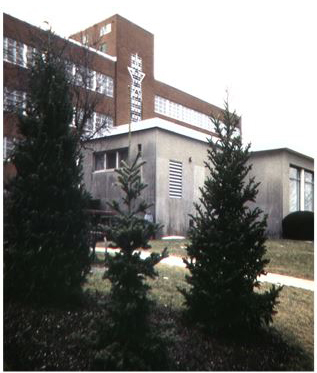 | Connecticut Valley Hospital Addiction Services Division (ASD) Middletown Campus Margaret O’Hagan-Lynch, M.S., LPC, Division Director 860-262-6503 Sean Keane, LCSW, Assistant Division Director 860-293-6401 Janice Bergin, MSN Chief of Patient Care Services 860-262-6368 Sabita Rathi, M.D., Medical Director 860-262-6367 For Admission/Screening Information Call: 1-800-828-3396 |
MISSION:
To provide services to individuals requiring an inpatient level of care as a consequence of their dependence on alcohol or other drugs; safely restore people with acute alcohol or other drug dependence to an appropriate level of physical and mental health in a caring, therapeutic environment; provide clients with an optimal range and intensity of rehabilitative services that will empower them to successfully cope with the next phase of their recovery efforts; and assist clients in making connections with a community resource network that will support their recovery, medical and psychiatric needs following discharge.
Services in this treatment environment emphasize respect, dignity and compassion for clients. This environment also promotes self-worth, a sense of personal efficacy and a view that recovery involves personal responsibility. All clients are protected by Federal and State confidentiality regulations.
WHO WE SERVE:
Adult men and women 18 years of age or older with moderate to severe levels of alcohol or other drug dependence. Eligible clients are medically indigent and have complications directly or indirectly associated with their substance dependence such that outpatient care is either inappropriate and/or not likely to be successful. These conditions can include complex medical needs, functional behavioral deficits, recidivism and co-occurring psychiatric disorders.
Special populations served include: pregnant women, HIV positive, deaf and hearing impaired, and individuals with co-occurring psychiatric disorders.
ADMISSION PROCESS:
Clients referred to the Detoxification Program are admitted either as a voluntary admission, or on an involuntary Physician Emergency Certificate. Clients referred to the Rehabilitation Programs are admitted either through a voluntary admission process, or referred by the courts as a stipulation of probation/parole. Court referrals may be facilitated by the DMHAS Office of Forensic Evaluation Court Liaison Program or Court Support Services Division.
All admissions are preceded by a screening process which involves the collection of demographic and clinical data to determine the appropriate level of care. Clients are screened utilizing the Connecticut Client Placement Criteria.
For Admission/Screening Information Call: 1-800-828-3396
LENGTHS OF STAY:
The Detoxification Program has 20 male/female beds, with an average length of stay of approximately 5 days.
There are 3 Rehabilitation Programs. Two male units each with 30 beds and one female unit (STAR Program) with 30 beds. Rehabilitation services are individualized, but generally do not go beyond 45 days inpatient care.
SERVICES PROVIDED:
- Medical Management of withdrawal symptoms (methadone protocol available for opiate detox)
- Comprehensive psychiatric, medical, and psychosocial assessment
- Treatment of acute medical/psychiatric problems (including outside referrals, as necessary)
- Educational groups on addiction/recovery
- Development of a comprehensive aftercare/discharge plan that is supportive of the next stage of recovery
Rehabilitation Program
Treatment services include a broad range of intensive clinical services:
- psychiatric care
- medical care
- group counseling
- individual counseling
- family therapy
- milieu therapy
Specialty groups and services include:
- grief and loss
- roles and addiction
- leisure skills/recreation/fitness
- women’s specialty issues
- dialectical behavior therapy skills for substance users
- parenting skills
- music therapy
- occupational therapy
- employment skills
- GED education/educational tutoring
Adjunct services include:
- A full range of psycho-educational groups addressing substance abuse and recovery topics
- a comprehensive series of health education topics relevant to addiction/recovery
- 12-step recovery meetings
- HIV education/testing
- recreation/fitness groups
- spiritual and chaplaincy services
- family education
- clients on methadone maintenance may continue while in the program
Additional Links:

